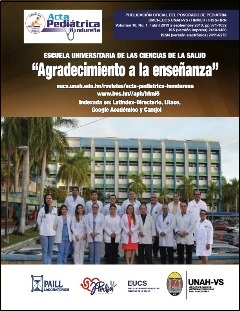Use of Palivizumab in Premature Newborns
DOI:
https://doi.org/10.5377/pediatrica.v9i2.8790Keywords:
Premature, Palivizumab, Prevention, Respiratory Syncytial Virus, Respiratory DiseaseAbstract
Palivizumab is a biological therapy belonging to the family of IgG monoclonal antibodies, it is indicated for the prevention of severe lower respiratory disease caused by Respiratory Syncytial Virus (RSV) in preterm infants with risk factors. Preterm infants are considered the most susceptible to severe respiratory disease by RSV compared to healthy newborns (RNT), which translates into higher incomes to Neonatal Intensive Care Units (NICU), higher hospital costs and greater morbi-mortality. Prophylaxis with Palivizumab according to the latest update of the American Academy of Pediatrics (AAP) can be administered to newborns ≥ 29 weeks and 0 days of gestation that are less than 12 months at the start of the RSV season or are given high during it. For newborns during the RSV season, at least 5 doses will be needed. Given the controversy that currently exists in the use of Palivizumab, due to its high costs and discrepancies in the indications related to gestational age, we decided to make a bibliographic review of the use of Palivizumab in preterm infants.
Downloads
1030

